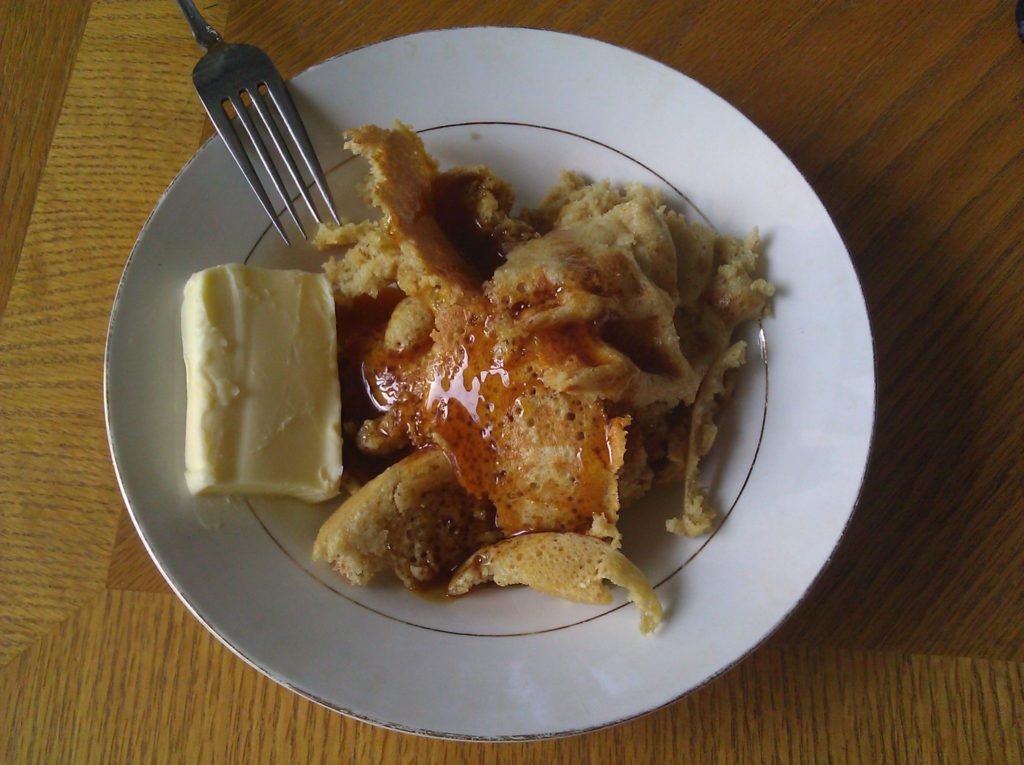
Delving into Traditional Eating for the first time inevitably uncovers the fact that modern methods for preparing grains and legumes can be extremely damaging to health over the long term particularly if numerous servings of these foods are consumed on a daily basis as recommended by conventional dietitians and nutritionists.
Even if you take the time and care to make your own bread at home with freshly ground grain, if you do not follow the centuries-old traditions for eliminating anti-nutrients and maximizing the nutrition in the grain prior to baking, you could, in fact, be doing yourself and your family more harm than good.
In the video below which I filmed as part of a Beginner Video Series for the Weston A. Price Foundation, I show you the basics for soaking grains and legumes so that you can enjoy these wonderful foods in your home and experience health benefits from doing so rather than health depletion.
Following these guidelines makes food more digestible and more nutritious as vitamins and minerals become more bioavailable.
As a huge bonus, preparing grains properly results in more satisfaction per bite. This translates into easier portion control which makes eating less and losing weight more attainable.
For a complete transcript of this video which is translatable into any language, click here.
Soaking Grains and Legumes Video How-To
This lesson describes the very important traditional practice of soaking legumes and grains. Note that in the past few years, the use of chickpea cooking water, called aquafaba, has become popular in vegan circles.
Note that while legumes are a traditional food, using the cooking water as an egg replacement is not. In fact, it is quite dangerous to gut health as it is loaded with anti-nutrients.
So enjoy your legumes and grains, but be sure to toss the soaking and cooking water!
More Information on Soaking
These articles contain more information on soaking once you get the hang of grains:
- How to soak raw nuts
- Soaking raw seeds
- How to soak beans before cooking
- Soaked lentils
- Does white rice need soaking?








Sarah,
What is the proper way to to soak raw buckwheat grouts?
I should have have written:
What is the proper method to soak and ferment raw buckwheat groats?
Thanks!
Lets pretend not to notice the redundancy in that last sentence…
So, once properly soaked, whole grain trumps white flour? And then, what is it exactly that is bad about hybridization? Hasn’t that been occurring since, I don’t know, a long time ago? It’s not genetic modification or anything. Plants are often naturally hybridized in nature.
Hi Sarah
The subject of grains is so confusing to me now. I enjoyed your video on grain preparation and grinding your own grain for healthier breads, etc. and I can relate with all of it.
I am also seeing so much information, articles and books out there about the benefits of going grain-free. So, what are we supposed to do? Should we go about making our own healthy grain breads, etc. or should we eliminate it?
Hi Sarah,
I’m a little confused about the reasons for soaking grains and flour. If I soak freshly ground flour in a recipe, do I still need to soak/sprout and dry the grains before I grind them? I started grinding the grains for your delicious cereal recipe and realized I hadn’t sprouted the grains first. But then I soaked the flour in buttermilk for 24 hours.
I had a hard time keeping the “coffee cake” hid from family members while it cooled. 🙂 My daughter and I had the cereal for breakfast this morning and she likes it! My kids (now 23,18,13) grew up on fast food so the switch now to healthier eating feels like a losing battle most days. So glad I found your website with all the great info! Thank you
Hi Sarah,
I make my own whole-wheat flour tortillas (whole wheat flour, baking powder, salt, water, olive oil) and I was wondering, after watching this video,
a. should I soak the 3 1/2 cups of whole wheat flour prior to making tortillas,
b. the method I should use (water? vinegar?) and for how long.
What about making biscuits from scratch? Would any of this apply?
Thanks!
Thanks SO MUCH for sharing these video’s!!!!!!!! The music at the end is a little freaky lol, but i really appreciate the free video’s you put out and your desire to help people!
Hi Sarah,
I just read this info on another blog and am a bit confused:
“Taking the lead from another phytic acid study, I have recommended in the now-defunct e-course to add a bit of fresh ground wheat, spelt, rye, or buckwheat to the oatmeal and then soaking it. The phytase in these other grains will work to reduce the phytic acid in the oats”.
(http://www.rebuild-from-depression.com/blog/2010/02/oatmeal_phytic_acid.html)
Is this necessary??
Thank you!